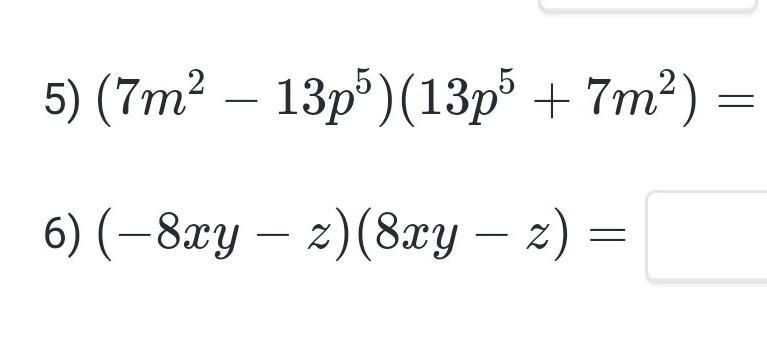Предмет: Математика,
автор: samigullinaanastasia
пжжжжжжжжжжжжжжжжжжжжжжжж
Приложения:

Ответы
Автор ответа:
1
Ответ:
4 10
5)=49m -169p
2 2 2
6)=z -64x y
Пошаговое объяснение:
Похожие вопросы
Предмет: Алгебра,
автор: kves
Предмет: Математика,
автор: LUDAANABOL
Предмет: Русский язык,
автор: ani1987
Предмет: Информатика,
автор: KOTVASILY111111
Предмет: Литература,
автор: lbespalova2006